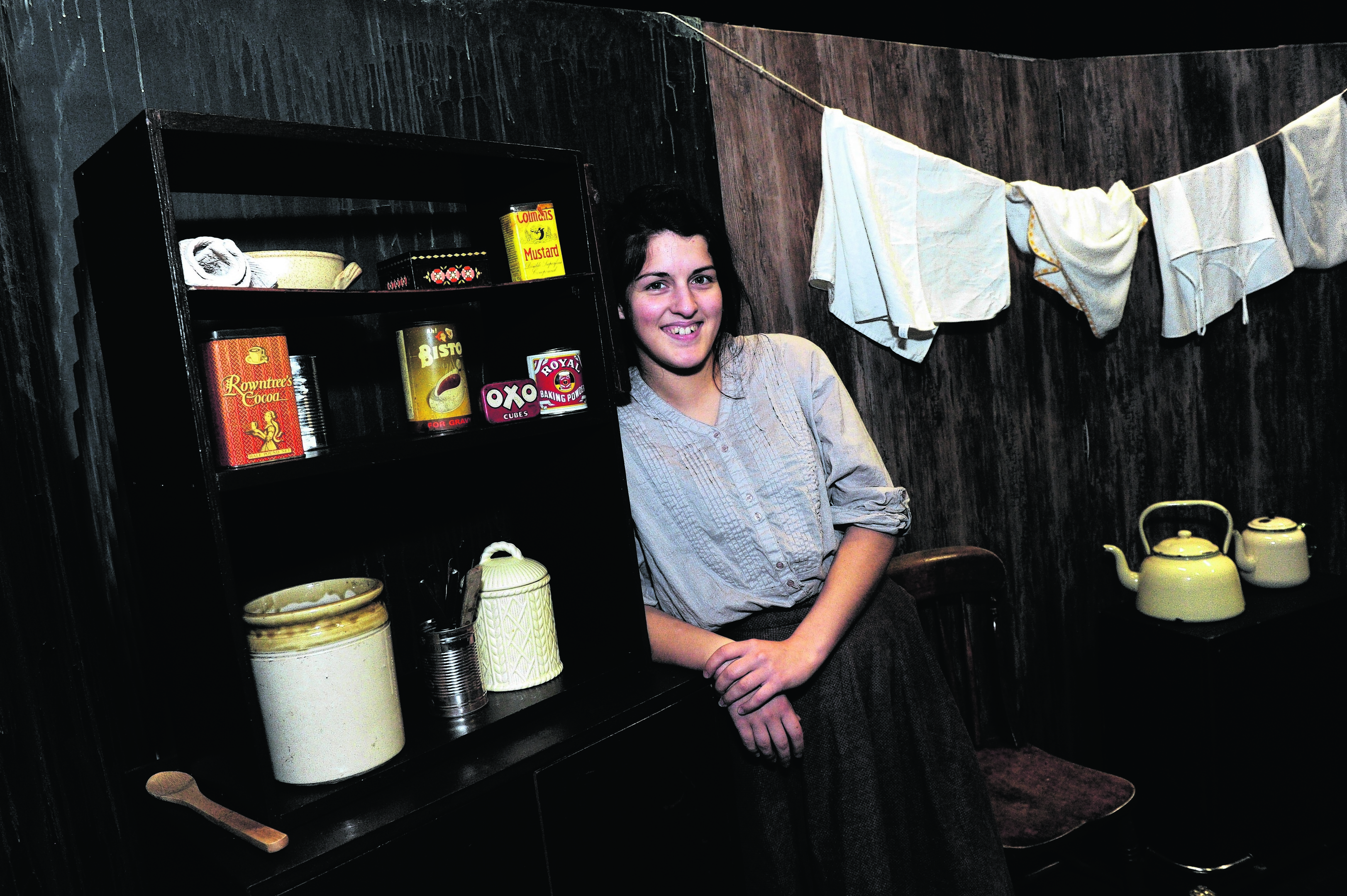Cheryl Livingstone speaks to Katie Grant about her role playing Maggie Morrison in the NESCol HND Acting’s performance of Men Should Weep
HI, KATIE, THANKS FOR FINDING SOME TIME TO SPEAK TO US. FOR THOSE WHO HAVEN’T SEEN THE PLAY BEFORE, COULD YOU TELL US WHAT MEN SHOULD WEEP IS ABOUT?
It is the story of a family living in poverty in Glasgow in the 1930s. There are many themes in the play – for example, unemployment and how that can affect people, and looking after children in a damp and dingy house, which can affect their health.
WHAT ARE SOME OF THE MAIN THEMES EXPLORED?
I would say that the issue of poverty is a main theme and something which is still unfortunately very relevant to audiences today. Another main theme is the idea of the family unit, which is being put under terrible strain with the family having no money, which leads to arguments and upset in the house.
WHY DID YOUR GROUP CHOOSE TO DO THIS PLAY?
We present two plays a year to achieve our HND qualification and we performed a play by Bertolt Brecht in January called The Resistible Rise of Arturo Ui, which deals with Hitler’s rise to power in Germany in 1931. The play was set in Chicago, which meant we were all using American accents, which was a lot of fun. This time, we wanted to show that we could work on a play which was set in Scotland and gave us an opportunity to work on a naturalistic style and accents closer to home. Although that has also been a challenge.
YOU PLAY THE CHARACTER MAGGIE. COULD YOU TELL US WHO SHE IS AND WHAT SHE IS LIKE?
Maggie is a typical Scottish matriarch who loves her husband and her children and her family and would do anything for them. She would go without so that they could eat, and frequently does. She is a very loyal person who cares about what people, and the neighbours, think about her and her family. She is not too proud to ask for help, but she is getting to a point where, if she doesn’t put her foot down, nothing will change for the better.
WHAT WERE SOME OF THE CHALLENGES OF PLAYING MAGGIE?
The lines. She is a main player in the play and is in practically every scene, so there have been a lot of lines to learn. Also, it has been emotionally exhausting rehearsing, because Maggie goes through a lot of self-discovery and emotional changes. It is quite challenging to be only 21 and have to believe you are a married woman in her 30s with a husband and six children.
HOW HAVE REHEARSALS BEEN GOING?
We are timetabled to be in college for four days in the week and rehearse only on a Tuesday and Wednesday, so time has been another challenge. Our director and lecturer, Vicki Jamieson, has been giving us a lot of support and ideas for set, costume and, of course, the acting in rehearsals.
I think everyone is starting to get to the place where we really need an audience to start playing to.
We are setting up the staging, props and costumes ourselves, so rehearsals are always hard work as you have to be concentrating on making sure that your backstage tasks are complete before then thinking about your acting on stage.
THE PLAY WILL BE THE FINAL TIME THE GROUP WILL PERFORM TOGETHER DURING THEIR TWO-YEAR COURSE. WHAT HAVE YOU ENJOYED MOST ABOUT YOUR TIME ON THE COURSE?
Personally, I feel amazed at how much of a family unit my class has become through acting together for the past couple of years. Remembering back to the start, there were a lot of different personalities and qualities which really helped us become a really good group of actors. It’s like being in a theatre company. We have built a real feeling of trust as a group, which is so important when working on stage together.
ANY HIGHLIGHTS/FAVOURITE MOMENTS?
For me, it’s definitely the opportunities made available to us in our second year. Such as travelling to visit professional theatres and actors in Edinburgh and Glasgow, as well as in Aberdeen. We have had quite a few meetings with professional actors and theatre practitioners who we could speak to about working in the industry. They were very encouraging. In particular, the practitioner and actress Wendy Seager, whom we met at the Lyceum in Edinburgh in The Bondagers and also at the Lemon Tree when she was in Long Live the Little Knife, was a total inspiration as she has acted in so many different fields and is keen to remain in Scotland, encouraging young Scottish talent.
You can catch Men Should Weep at the Lemon Tree in Aberdeen on Thursday, May 28, and Friday, May 29, from 7pm. Tickets cost £9.90.
